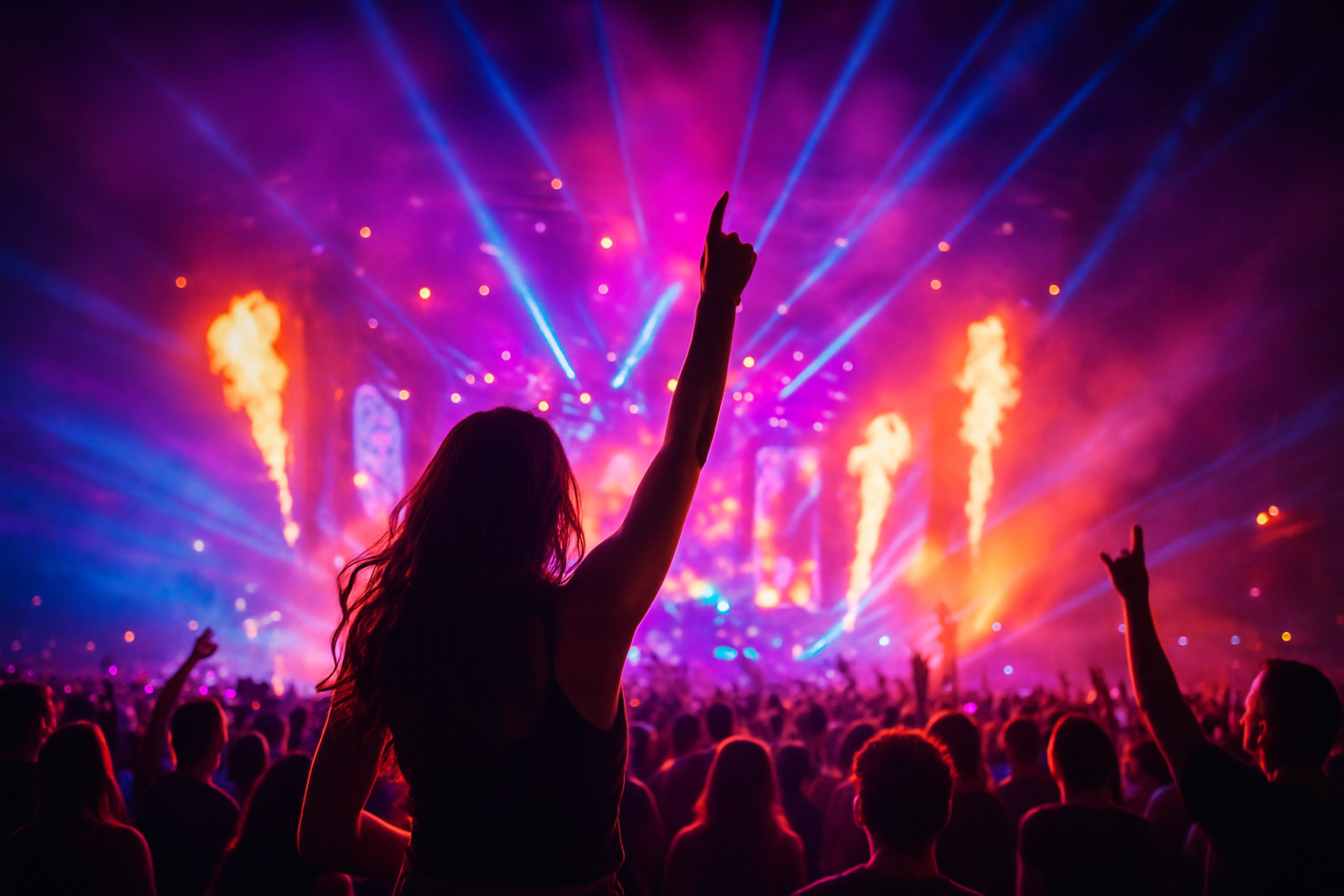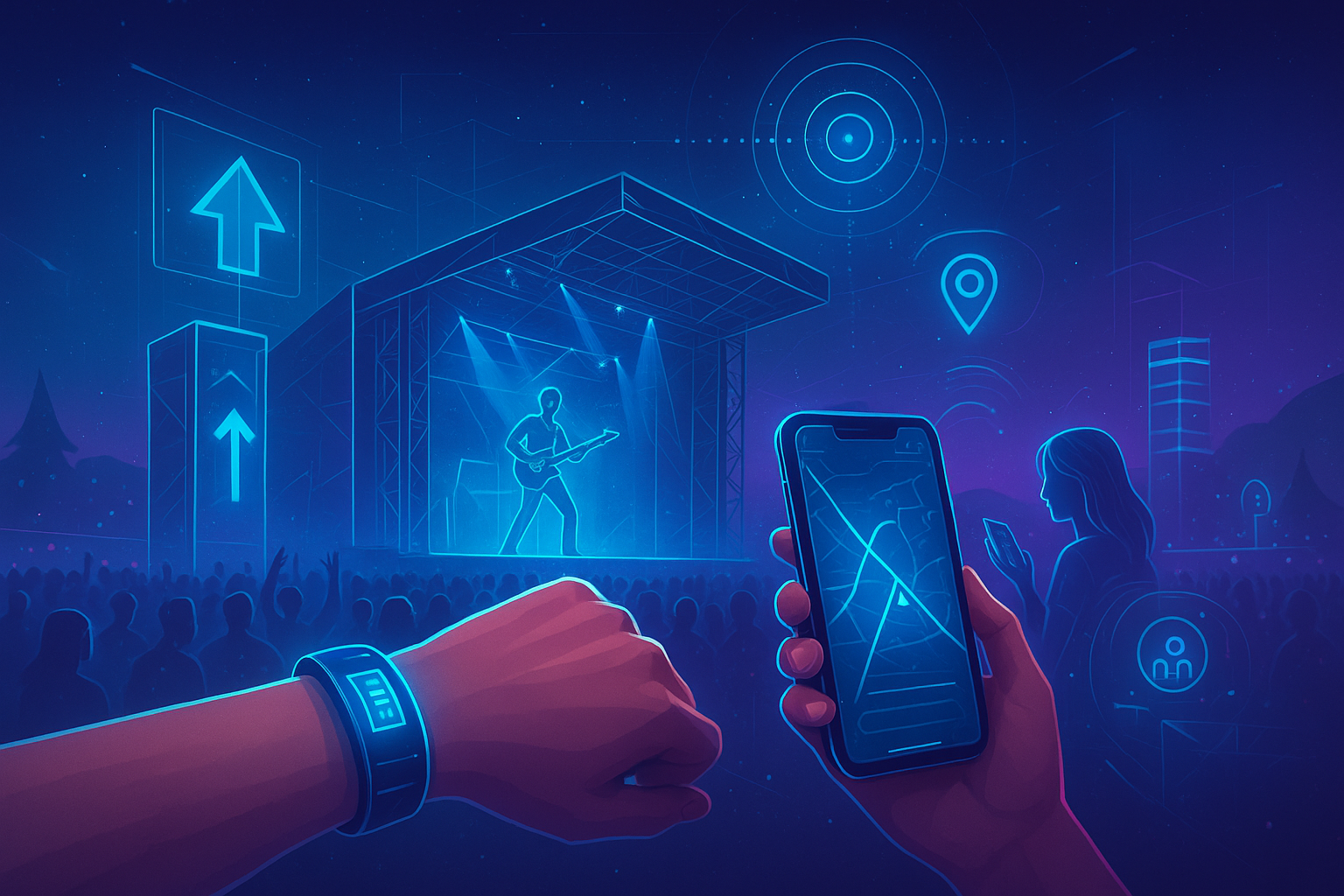Why do certain festival moments stay with us for decades, while others fade within days? How do some events create experiences so powerful they become part of our identity? The science behind these questions isn't just fascinating—it's revolutionizing how forward-thinking event organizers design experiences that resonate deeply with attendees.
The Peak-End Rule: Why Your Memory Plays Tricks on You
Nobel Prize-winning psychologist Daniel Kahneman discovered something fascinating about how we remember experiences: we don't recall them in their entirety. Instead, our brains primarily store two key moments—the emotional peak (the most intense part, whether positive or negative) and the ending. This psychological phenomenon, known as the "Peak-End Rule," explains why a single transcendent moment during a concert can overshadow hours of waiting in line or dealing with crowds.
Smart event organizers are now deliberately designing with this principle in mind. Rather than trying to make every minute perfect (an impossible task), they focus on creating a few extraordinary peak moments and ensuring the event ends on a high note.
"Our research shows that attendees who experienced a carefully designed 'peak moment' rated their overall satisfaction 37% higher than those who had a consistently pleasant but peak-free experience."
Coachella's iconic art installations, Tomorrowland's elaborate stage reveals, and Burning Man's temple burn are all examples of intentionally designed peak moments—experiences specifically crafted to create emotional high points that will dominate attendees' memories of the entire event.
The Power of Shared Experience
Humans are fundamentally social creatures, and our brains process shared experiences differently than solitary ones. Neuroimaging studies show that when we experience something emotional alongside others, our brain's reward centers activate more strongly than when we experience the same thing alone.
This explains why festival moments often feel more powerful than listening to the same music at home. When thousands of people simultaneously experience a drop in the music, a light show, or a surprise guest appearance, the collective emotional response amplifies each individual's experience.
The Synchrony Effect
When people move or sing together, their brains actually synchronize, releasing more oxytocin (the bonding hormone) and creating stronger feelings of connection and belonging.
Apps like FindTribe tap into this psychology by helping friends stay together during events, maximizing opportunities for shared experiences. The ability to coordinate meetups and share locations means more moments experienced together rather than missed connections and "I wish you'd been there" stories.
Anticipation: The Pre-Experience Experience
The psychology of anticipation is a powerful but often overlooked aspect of event experiences. Research shows that people often derive more happiness from anticipating an experience than from the memory of it afterward. This "anticipatory period" can last months before an event and significantly impacts overall satisfaction.
Leading festivals are now deliberately designing the pre-event experience, creating anticipation through phased lineup announcements, interactive countdown campaigns, and community-building activities long before the gates open.
"The average festival attendee spends 27 hours consuming content related to an event before attending—nearly three times longer than the event itself."
This explains why ticket-unboxing videos, lineup speculation threads, and festival preparation content perform so well on social media. They're not just marketing materials; they're extending the psychological experience of the event and building anticipation that enhances the actual experience when it arrives.
The Identifiable Memory Moment
Psychologists have identified a phenomenon called "flashbulb memory"—extraordinarily vivid, detailed memories of surprising, consequential events. While traditionally associated with major historical moments (like where you were on 9/11), event organizers are now deliberately creating conditions for personal flashbulb memories.
These moments typically combine several elements: emotional intensity, uniqueness, sensory richness, and social significance. When an experience checks all these boxes, it becomes what memory researchers call an "identifiable memory moment"—a memory so vivid it feels like you could step back into it years later.
Designing for Memory
The most memorable festival moments typically combine multiple sensory inputs—music synchronized with visuals, physical sensations like confetti or water elements, and emotional triggers like nostalgia or surprise.
Secret sets, surprise guest appearances, one-time-only performances, and unrepeatable spectacles all leverage this psychology. They're not just exciting in the moment—they're designed to create memories that attendees will revisit for decades.
The Psychology of FOMO and Social Proof
Fear of Missing Out (FOMO) isn't just a marketing buzzword—it's a well-documented psychological phenomenon rooted in our evolutionary need to be included in tribal activities. Social media has amplified this effect, creating a constant awareness of experiences we're not part of.
Event organizers are increasingly designing experiences with "social proof" in mind—creating moments that are inherently shareable and visually distinctive. From Instagram-worthy art installations to color-coordinated crowd moments, these elements aren't just aesthetically pleasing; they're psychologically calibrated to generate FOMO in non-attendees while reinforcing attendees' sense that they made the right choice.
This psychology extends to app features as well. When FindTribe users see friends gathering on the map, it triggers a mild FOMO response that motivates social connection—a positive application of this psychological principle that enhances rather than detracts from the experience.
Cognitive Load and Decision Fatigue
The human brain has limited cognitive resources, and making decisions depletes them. This is why even fun choices (like which of five simultaneous acts to see) can become stressful at festivals, leading to a phenomenon psychologists call "decision fatigue."
As events have grown larger and more complex, cognitive load has become a significant factor in attendee experience. Too many options, complex navigation, or information overload can actually reduce enjoyment by taxing mental resources that could otherwise be directed toward being present in the moment.
"When we simplified our festival app interface and reduced the number of recommended options shown at any time, user satisfaction increased by 26% despite offering fewer choices overall."
This is why intuitive wayfinding, personalized recommendations, and simplified decision architecture are becoming central to event design. By reducing cognitive load, these elements free attendees' mental resources for immersion in the experience itself.
The Nostalgia Factor
Nostalgia isn't just a sentimental feeling—it's a powerful psychological force that research shows can actually combat feelings of loneliness, boredom, and anxiety. Events that successfully evoke nostalgia create stronger emotional connections and more positive memories.
This explains the success of reunion tours, throwback stages at festivals, and retro-themed events. They're not just capitalizing on existing fan bases; they're tapping into the psychological comfort and emotional richness that nostalgia provides.
Interestingly, research shows that shared nostalgia—reminiscing together about past experiences—creates stronger social bonds than many other types of conversation. This is why festival "remember when" moments and anniversary celebrations are so effective at building community.
Psychological Safety and the Freedom to Express
For many attendees, events provide something increasingly rare in everyday life: a space where they feel free to express themselves without judgment. This psychological safety is a key factor in why festival experiences can feel so liberating and meaningful.
The most successful events deliberately cultivate this sense of safety through clear community guidelines, thoughtful security approaches, and creating what sociologists call "temporary autonomous zones"—spaces where different social norms temporarily apply.
Creating Safe Spaces
Features like FindTribe's friend location sharing help create psychological safety by ensuring people can easily reconnect with their support network if needed.
This psychological safety doesn't just make events more enjoyable—it makes them more transformative. Research shows that people are more likely to form new connections, try new experiences, and even reassess their identities when they feel this sense of safety and freedom.
Applying These Insights: The Future of Experience Design
As our understanding of event psychology deepens, we're seeing the emergence of a new discipline: experience design that deliberately works with these psychological principles rather than against them. The most innovative events are now designed with intentional emotional journeys, carefully crafted peak moments, and thoughtful attention to cognitive and social factors.
For attendees, understanding these principles can enhance your own experience. Knowing about the peak-end rule might encourage you to plan for a special closing experience. Awareness of cognitive load might lead you to make some scheduling decisions in advance rather than in the moment.
And for event organizers, these insights offer a powerful framework for creating experiences that don't just entertain in the moment but become cherished memories and drive loyal communities for years to come.
At FindTribe, we're fascinated by these psychological dimensions of events. Our app is designed not just as a practical tool but as an enhancement to the psychological experience—reducing cognitive load through intuitive navigation, facilitating shared experiences through friend-finding features, and creating peace of mind that allows for deeper immersion in the moment.



Leave a Comment
Share your thoughts, experiences, or questions about this article.
Thank you for your comment! It will appear after moderation.
Oops! Something went wrong. Please try again.